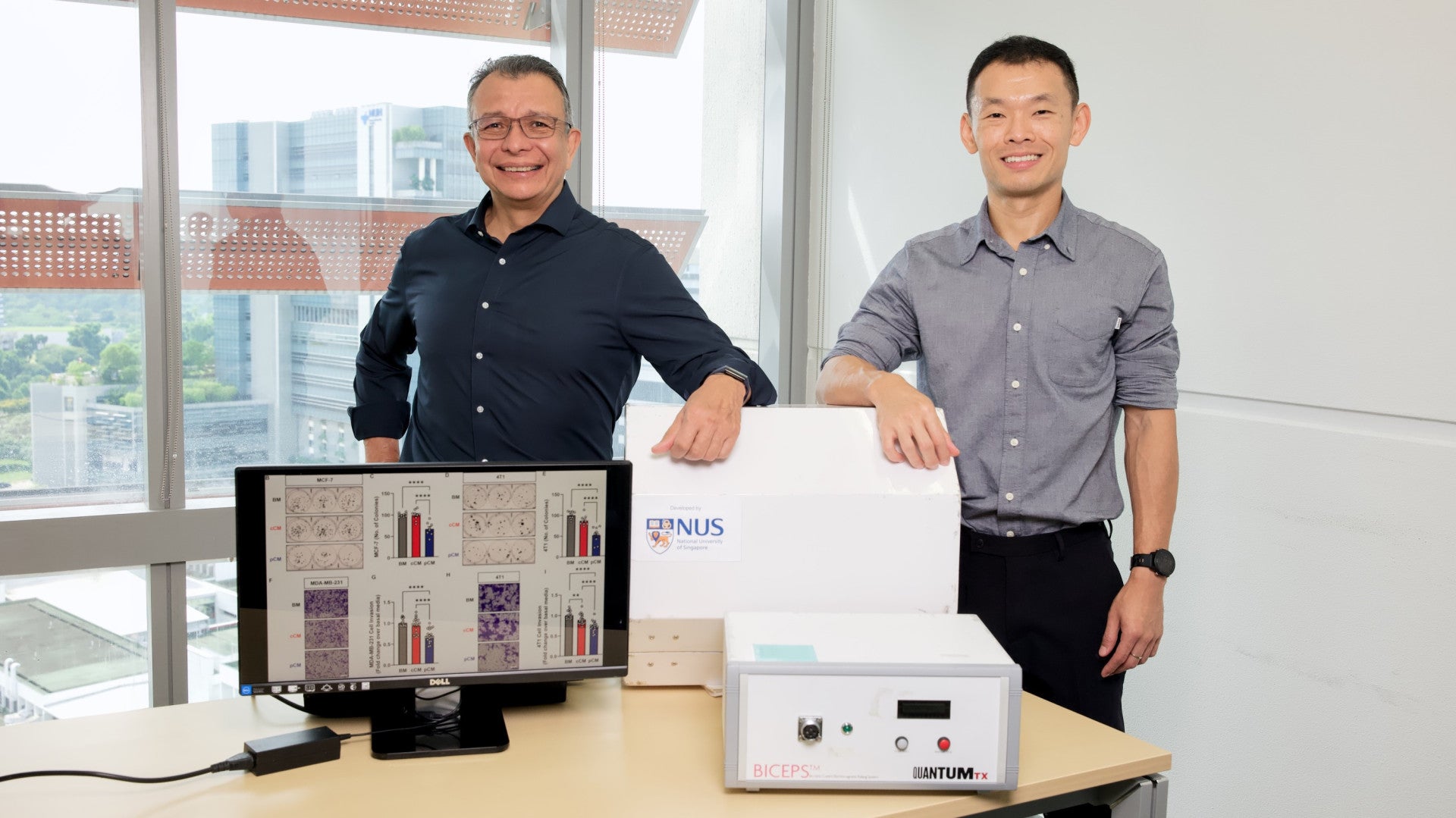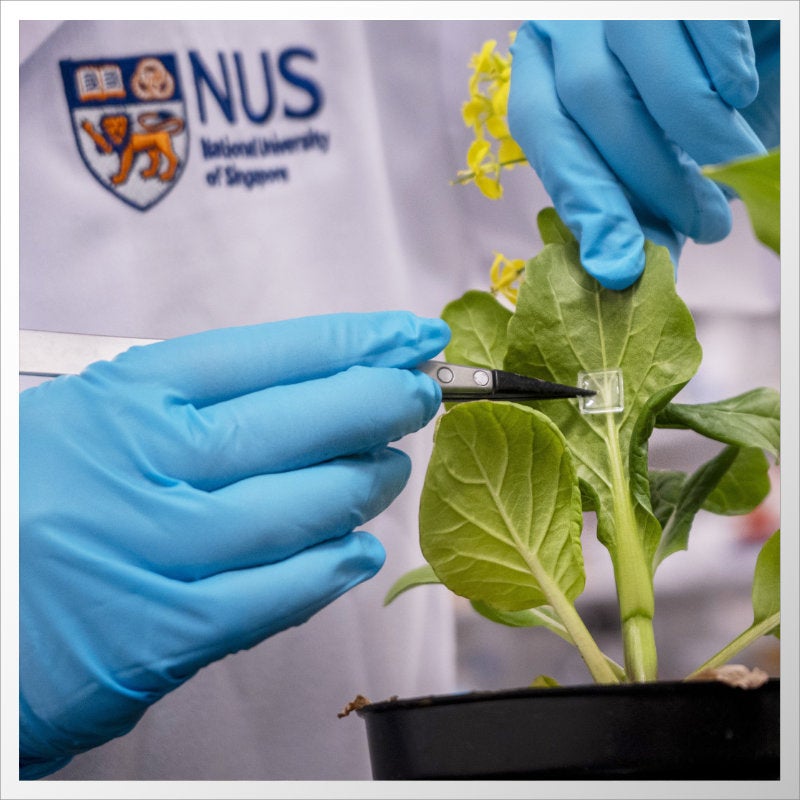NUS scientists discover a novel way of activating muscle cells’ natural defences against cancer using magnetic pulses
- May 21, 2024
 |
Photo credit: NUS iHealthtech
Exercise may help reduce cancer risk and offers a myriad of benefits. It induces the release of myokines, cytokines produced by muscle cells, which have anti-inflammatory properties. Additionally, exercise enhances the immune system, stimulates antioxidant production and DNA repair, and regulates hormones. These effects are linked to a reduced risk of certain cancers, such as breast and colorectal cancer.
These factors are considered by iHealthtech Associate Professor Alfredo Franco-Obregón and his team when developing muscle therapy and treatments using pulsed magnetic fields. This approach aims to assist elderly patients and injured individuals who cannot actively participate in daily exercise.
In a recent study led by Associate Professor Alfredo Franco-Obregón’s team, which includes Dr Alex Tai Yee Kit, they found that using their developed magnetic therapy not only boosts muscle regeneration and slows muscle aging, as shown in their previous studies, but also stimulates the secretion of the tumour suppressor HTRA1.
Related News
🌐 NUS News
🌐 NUS Centre for Cancer Research: Magnetic Stimulation Boosts Muscle’s Cancer-Fighting Power






